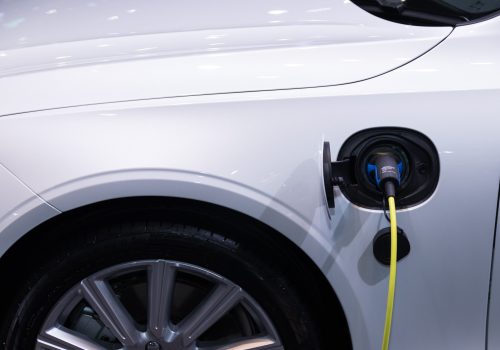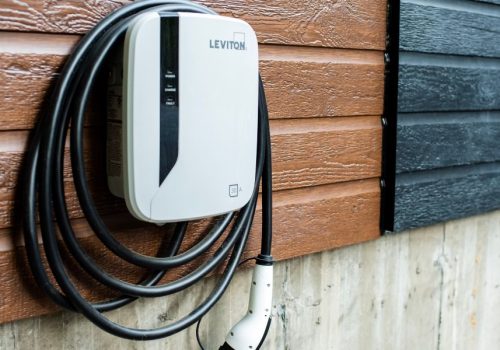With the UK government due to ban the sale of all petrol and diesel cars from 2035, the transition to electric vehicles (EVs) is no longer a question of if, but when. As more drivers make the switch to cleaner, greener transportation, understanding how EVs fit into everyday life – including how and where to charge them – is becoming increasingly important. For many, the key question remains: how long does it actually take to charge an electric vehicle? Here at Haley Electrical, we specialise in EV charger installations, so it’s safe to say that we know a thing or two about them. Below, we take a look at the key factors that influence charging times, the different types of chargers available, and what you can expect when it comes to powering up your electric vehicle.
Factors That Affect EV Charging Times
- Battery Size
The size of an EV’s battery, measured in kilowatt-hours (kWh), plays a significant role in charging time. Larger batteries, while offering greater driving range, naturally take longer to charge. For example:- A Nissan Leaf (40 kWh battery) will charge faster than a Tesla Model S (100 kWh battery) when using the same charger.
- State of Charge (SoC)
Charging is quicker when the battery is nearly empty and slows down as it approaches full capacity. Think of it like filling a pint glass; the closer it is to the top, the more careful you need to be to avoid overflow. - Charging Point Power Output
The speed of charging depends heavily on the power of the charging station or charger installed at your home:- Level 1 (3.7 kW): Typical for home installations, these chargers take around 8–12 hours for a full charge, perfect for overnight charging.
- Level 2 (7 kW): A more powerful home option, this can cut charging times in half, taking 4–8 hours.
- Fast Chargers (22 kW): Often found in workplaces or public spaces, these can deliver a full charge in 2–4 hours.
- Ultra-Rapid DC Chargers (50–350 kW): Found at motorway service stations, these can charge some EVs to 80% in just 20–40 minutes.
- Vehicle Charging Capabilities: Not all EVs can handle ultra-rapid charging. For example, a Tesla Model 3 can take advantage of 250 kW chargers, while other models may max out at 50 kW.
- Ambient Temperature: EV batteries perform best at moderate temperatures. Extremely cold or hot weather can slow down charging rates.




Common Scenarios: Charging Time Examples
To give you a clearer idea, here are a few real-world examples for popular EV models:
EV Model | Battery Size | 3.7 kW Charger | 7 kW Charger | 50 kW Rapid Charger |
Nissan Leaf (40 kWh) | 40 kWh | ~11 hours | ~6 hours | ~1 hour (to 80%) |
Tesla Model 3 (75 kWh) | 75 kWh | ~20 hours | ~10 hours | ~30 minutes (to 80%) |
Kia EV6 (77.4 kWh) | 77.4 kWh | ~21 hours | ~11 hours | ~18 minutes (to 80%) |
Charging at Home vs Public Charging
Home Charging
Home charging remains the most convenient and cost-effective option for most EV owners. Installing a 7 kW charger is an excellent investment for UK households, especially with government incentives like the OZEV grant for home installations. At Haley Electrical, we ensure seamless installation and guidance tailored to your property.
Public Charging
Public charging stations, such as those provided by BP Pulse, Gridserve, and Ionity, are ideal for quick top-ups during long journeys. Many UK motorway service stations now feature ultra-rapid chargers, offering significant convenience.
Tips for Faster and Smarter Charging
- Install a Smart Charger
Smart chargers let you schedule charging during off-peak hours to save on energy costs and reduce demand on the grid. - Plan Long Journeys Ahead
Use apps like Zap-Map or PlugShare to find charging points along your route, and prioritise rapid chargers for quicker stops. - Charge Before the Battery is Empty
Topping up your battery regularly, rather than waiting until it’s fully depleted, can save you time. - Leverage Renewable Energy
If you have solar panels installed, consider integrating them with your EV charger to power your car sustainably.
Haley Electrical - EV Chargers in Ongar
The time it takes to charge an EV depends on multiple factors, but with the right setup and a little planning, charging becomes an easy part of your routine. Whether you’re charging overnight at home or topping up on the go, EV charging is designed to fit seamlessly into modern lifestyles.
Ready to make the switch? We’d be happy to help! Please give us a call today on 0345 257 3532. We also have an online enquiry form that you can complete, and a member of our team will be in touch with you as soon as possible.










